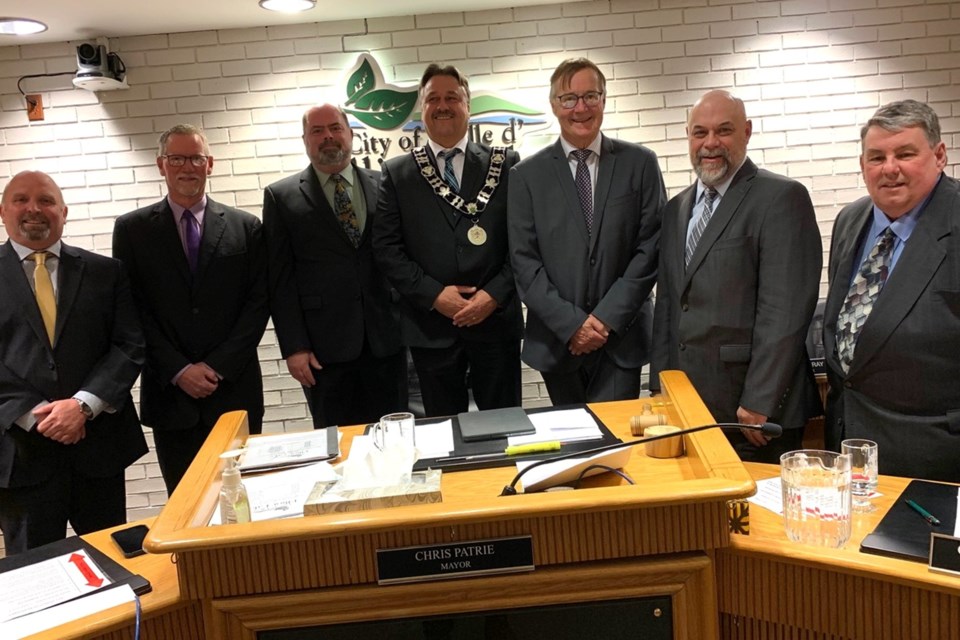During an information session for the newly elected Elliot Lake City Council, Integrity Commissioner Robert Swayze raised an issue with the city's procedural by-law directing staff to charge a $50 fee for people to file a complaint with the Integrity Commission through the clerk's office.
Swayze was unimpressed by the fee. He said that no other municipality that he knows of has such a fee and recommended council look at amending its procedural by-law to remove the fee.
"The ombudsman and I don't support there being a fee to file," he added.
The issue came up after council questions led to a discussion about confidentiality.
Some members of council tried to ask him if they could be free to share information amongst themselves about the nature of a complaint that may have been raised and dismissed.
"The situation becomes that we have seven members at the table not knowing who the complaint is about," Mayor Chris Patrie said. "It's a high level of stress. If a member of council is notified that the complaint is dismissed are we allowed to speak amongst ourselves about it?"
Swayze was confused by the question, asking how they would come to find out that a complaint had been registered against any of them when he wouldn't have told them about it if it had been dismissed.
"And these complaints that I receive, most of them are based on confusion or are politically motivated," Swayze said. "I dismiss more than half of them with a five-minute letter."
He said he sends a confidential email to the complainant and doesn't tell anyone else about the complaint when it's dismissed.
That's when the mayor explained that Elliot Lake has a procedure in place where the clerk charges a complainant $50 to accept the complaint and forward it to the Integrity Commissioner. If the complaint is dismissed, the money is returned to the complainant.
"Once a complaint has been filed I report that to council, no details, just that a complaint was filed," the clerk, Natalie Bray explained.
Swayze also reminded members of council that anytime they have a quorum, no matter where they are, they can be accused of having a closed meeting improperly if they talk about city administration at all, including discussing details of a complaint that he dismissed.
He said council's meetings must be open with very few exceptions and any discussion about a complaint that included the majority of council would have to be held in an open meeting.
"I get some really crazy complaints," he said. "You don't want to give a platform to these complaints."
He also spoke about the role of city councillors and the mayor, saying the most common mistake made by new members of council is thinking they have more power than they do.
"You must learn that you don't have much power," Swayze said. "You only have one vote. You can't be ordering staff around and they aren't involved in any way in the chain of command with staff."
He reminded them that they have to rely on staff and recommended council members cultivate a good relationship with them.
"You can disagree with staff but don't embarrass anyone publicly. Don't be angry, just move on. Staff are your advisors."
Members of council also wanted to know if a member resigning from their position could help them avoid prosecution under the Municipal Conflict of Interest Act.
Swayze said it would depend on the severity of the violation. He said he wouldn't take a minor infraction to court if the accused resigned but, if it were serious enough that he believed they should be removed from office he would still refer it to the courts.
But, he went on, there is a considerable difference between the consequences for violating conflict of interest under the act and contravening the code of conduct.
"I have no power to do anything. I only recommend sanctions to council (in code of conduct violations) or send it to court (in conflict of interest cases)."
He went on to say that he would notify council of his actions if he sent a case to court, or recommendations and council would have to decide whether it would follow his recommendations or not.
After the information session, council went into a closed session to discuss outstanding legal matters with its solicitor.
